2023 entrepreneurship outlook — 5 founder pitches, 5 experts, 15 takeaways

At a recent mixer meetup in Bengaluru, five shortlisted startups and five experts from the investor and corporate community shared insights on the theme, 2023 Outlook: Founder and Investor Roadmaps.
The two-hour event was hosted by the Karnataka Digital Economy Mission (KDEM) at the Karnataka State Electronics Development Corporation (KEONICS) office in HSR Layout, Bengaluru.
It was curated by MXXXR, a hybrid platform for showcasing innovations. Audience polls, pitch ratings, and crowdsourcing of questions before and during the event were showcased by Vinay Dora, Founder of CrowdProduct.
Expert panel
I. Expert panel
The five experts who spoke on the panel were: Naganand Doraswamy, Managing Partner, Ideaspring Capital; Ganapathy Venugopal, Co-founder and CEO, Axilor Ventures; Madhurima Agarwal, Country Head, Microsoft for Startups, India; Dr Vivek Mansingh, General Partner, YourNest VC Fund; and TN Hari, Co-founder, Artha School of Entrepreneurship.
As moderator of the panel and coach for the founder masterclasses, here are my 15 takeaways from the wide-ranging discussion, which was followed by networking with an audience of around 100 entrepreneurs and influencers. The experts offered insights on success factors for entrepreneurs, trends in the startup ecosystem, and tips for founders.
1. Opportunity: There are vast opportunities in untapped markets beyond the first wave of offerings such as ecommerce conveniences for well-off consumers in urban India. Examplars include DeHaat and Meesho.
2. Tech convergence: We have clearly moved beyond the earlier ‘hype’ stage of digital capabilities. Generational AI like ChatGPT is just the tip of the iceberg, and 2023 will be the year of the impact of deep tech.
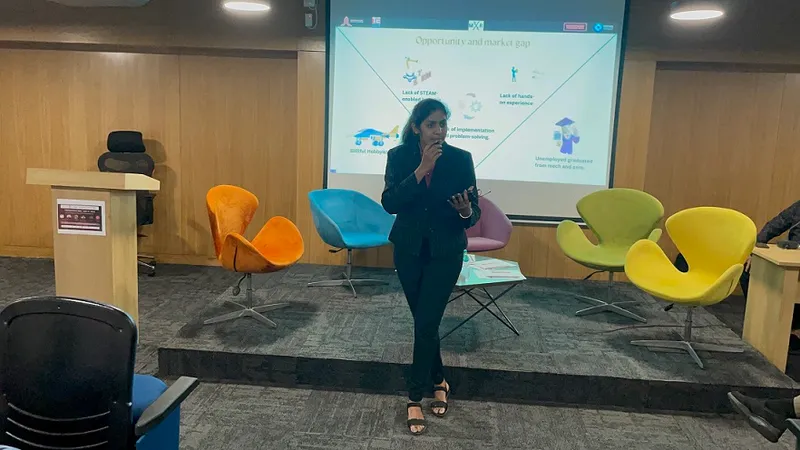
Gouthami TS, Aeronuts
3. Founding teams: Prospects for success and speed depend on the complementarity of skills of the startup co-founders. Together, they must show an effective blend of tech, business, and design aptitude.
4. Values: Humility and the ability to learn quickly are key requisites for founders. Startups can fail due to character gaps, and not just skills or finance gaps. Even in the quest for speed, core governance must not be overlooked. Fraudulent inflation of numbers is unacceptable, as recent developments have shown.
5. Value: Founders should develop a deep understanding of value delivery and value capture in the startup phases of discovery, validation, and velocity. At the IPO stage, startups should have management systems to help deliver the predictability that public markets demand, and manage the expectations of shareholders.
6. Valuations: Valuations are more realistic now due to the funding winter. Investors and founders are placing more emphasis on a clear path to profitability and unit economics, and not just growth at all costs.
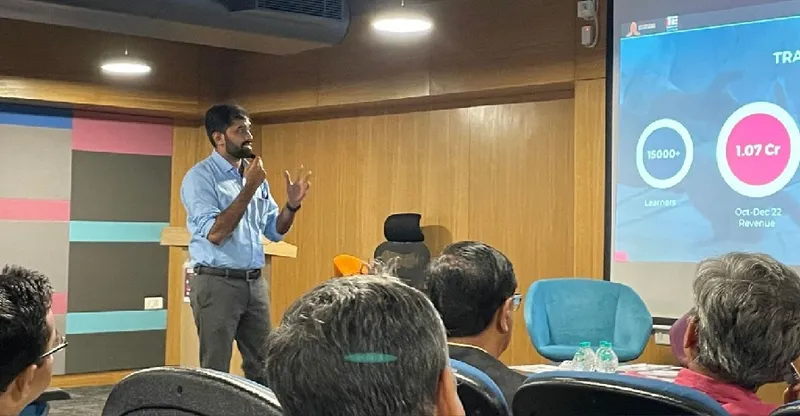
Gaurav Kamath, MicroDegree
7. Experience: Investors look not just for the educational pedigree of the founders, but their years of experience as well. For example, 8-10 years of experience is reasonable for a SaaS founder.
8. Co-investing: Corporates who look to invest in startups also assess other lead investors’ expertise in the domain before co-investing with them. Founders need to assess investor dynamics and their ability to learn as well.
9. Research: While not everything is known in new domain areas, founders must do adequate research in their spaces. This helps preparedness in areas like competitive intelligence, regulatory changes, and managing investor relations.
10. Capabilities: Indian founders’ capabilities for developing products for the world market have significantly increased. They are also targeting sectors like defence, beyond the business and consumer markets. Even areas like the building and launching of satellites have opened up to entrepreneurs.
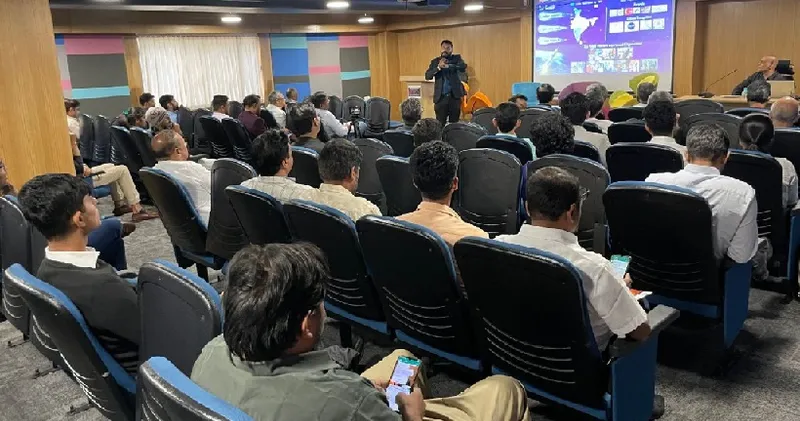
Abhijeet Chaudhari, Varnaaz Technologies
11. IT services: The major IT services players in India have built a sizeable talent foundation and pipeline, and strengthened the US-India corridor. They have skimmed the cream of profits in this sector, and it will be hard for new players to reach their scale.
12. Enabling ecosystem: A number of tactical support solutions have emerged for founders, at launch as well as scale stage. This includes tech partnerships and professional services. The investment pool has broadened to include more angel investors as well.
13. Digital public goods: The layering of digital infrastructure such as Aadhar, UPI, and ONDC bodes well for startups that can leverage their strengths and services. This will favourably impact the speed of customer onboarding, trust, and scale.
14. Mentors and coaches: Mentors help make the founder’s journey less lonely, and coaches help improve specific performance requirements. Mentoring is an art and a science, since it can involve giving advice or opinions that people may not want to hear. Mentors are valuable in the full lifecycle of a startup. Sounding boards are also indispensable here.
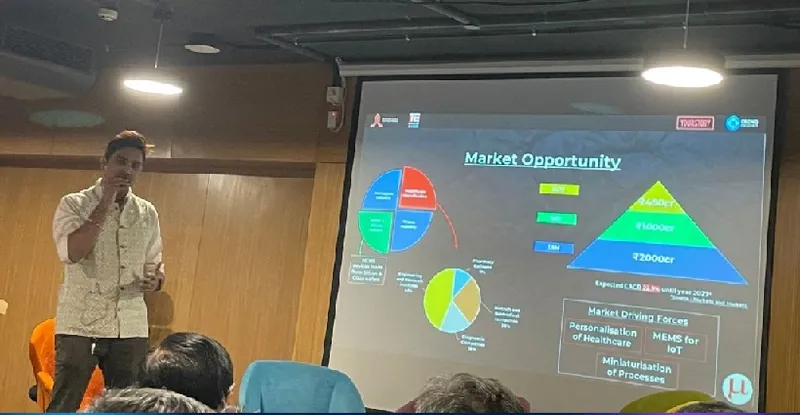
Neeraj Bagi, Meukron Technologies
15. Government support: Government agencies and grants can help ensure the long-term success of the entrepreneurship movement and strengthen the innovation capacity of educational and research institutes.
For example, founders at the launch and scale stage can reach out to KDEM and its industry partners for support. The mixer event was hosted by KDEM, whose mandate includes the promotion of startup clusters in cities across Karnataka.
The KDEM building also hosts the regional office of IAMAI (Internet and Mobile Association of India), RBI Innovation Hub, NASSCOM 10,000 Startups, and NASSCOM’s CoE for IoT.
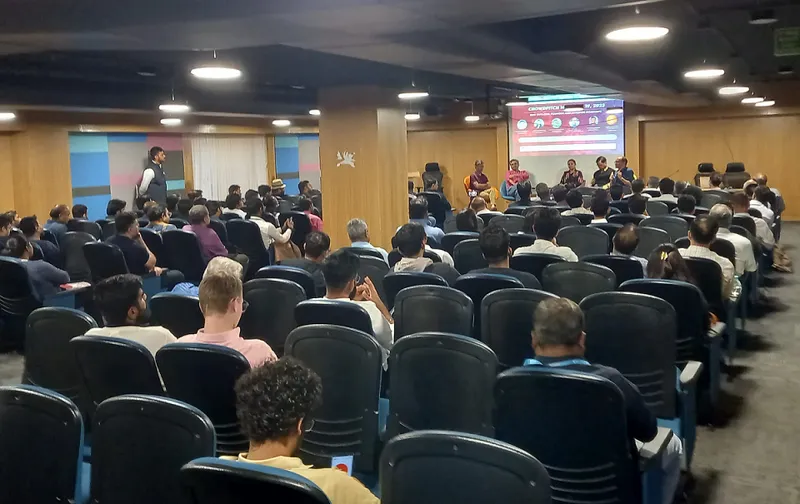
II. Startup pitches
The mixer also featured pitches by startups shortlisted by the Beyond Bengaluru Blue initiative. Startups were chosen from three earlier events in Hubballi, Mangaluru, and Mysuru. The events were organised from September 2022 to December 2022 by KDEM in partnership with TiE Bangalore.
Gouthami TS, CEO of Aeronuts, shared her startup’s journey in providing aeromodelling kits to students. It gives aspiring engineers and hobbyists hands-on experience via drone models and DIY kits, along with mentorship support. Based on a subscription model, over 750 students and five institutional partners have been onboarded so far.
Abhijeet Chaudhari, Head of Operations at Varnaaz Technologies, presented his startup’s astronomy education solution aptly called Tare Zameen Par. The mobile digital planetarium helps students, particularly in rural India, to aspire to a scientific career and nurture a passion for astronomy. The products include an inflatable dome, a mobile science lab, and science kits.
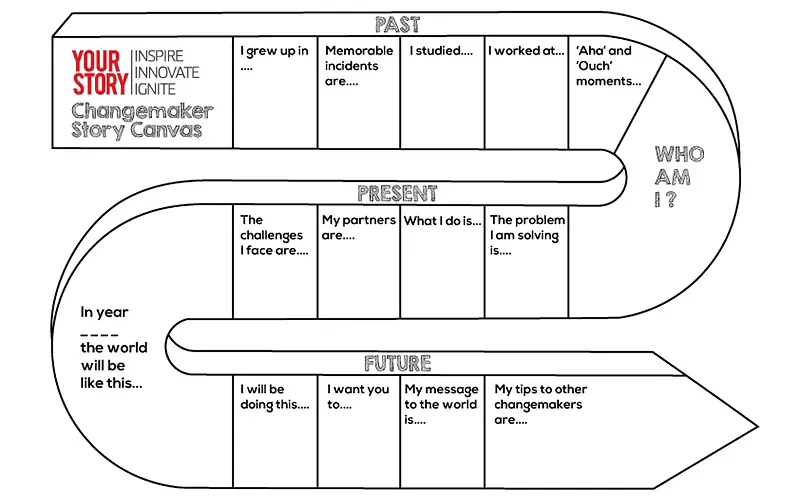
Neeraj Bagi, Founder and CEO of Meukron Technologies, described the market opportunity in helping semiconductor and biomedical companies rapidly prototype microfluidic devices to accelerate product development. Use cases include remote diagnostics and disease analysis. The startup has won a range of competitions already.
Gaurav Kamath, who co-founded MicroDegree, has developed a multilingual IT skilling platform for learners in India beyond the large urban clusters. Backed by 100X.VC, it currently offers coding and job-ready skills in Kannada at an affordable price. Thanks to educational support from industry experts, a number of its graduates have already been placed at reputed firms.
Abhijit Chaudhary, CEO of Niral Networks, presented the opportunity for his startup’s private 5G core and edge infrastructure platform for enterprises. It helps improve operational effectiveness for enterprise automation. Use cases include real-time monitoring, drone-based tracking, and predictive maintenance at ports and industrial plants. The company has cultivated a number of industry alliances, and won grants as well to target Indian and overseas markets.
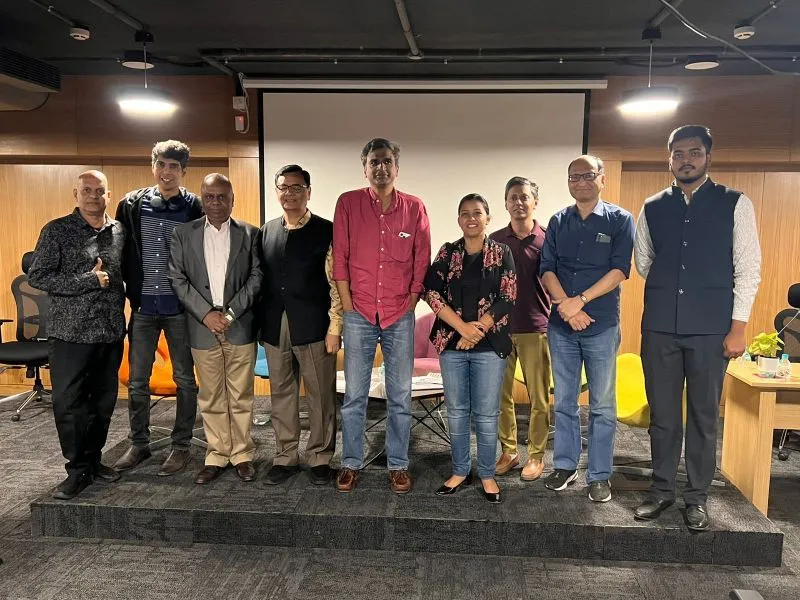
Speakers with KDEM team
III. The road ahead
In sum, the experts advised aspiring founders to find the balance between Think big and Be grounded. The ride matters as much as the destination; the race, jockey and horse are equally important.
Founders must demonstrate their commitment to hard work and the long haul. The startup journey is full of ups and downs, and founders must even be prepared to go through near-death experiences like approaching the brink of bankruptcy.
Two of the speakers, Vivek and Hari, are also bestselling authors on entrepreneurship, sharing a wealth of hard-earned advice. See YourStory’s reviews of their books in our Book Review section.
Other issues raised in the audience discussion were the importance of patents for product startups, the role of boards of directors and advisors, the importance of respecting customer’s data privacy, and opportunities for tech startups to address the MSME sector.
All founders were coached via an earlier masterclass on pitching and storytelling techniques. The pitch format and structure were also harmonised to deliver a crisp and compelling experience at the mixer event. Future events by MXXXR will feature thematic clusters such as education, fintech, healthcare, deep tech, entertainment, and other sectors.





